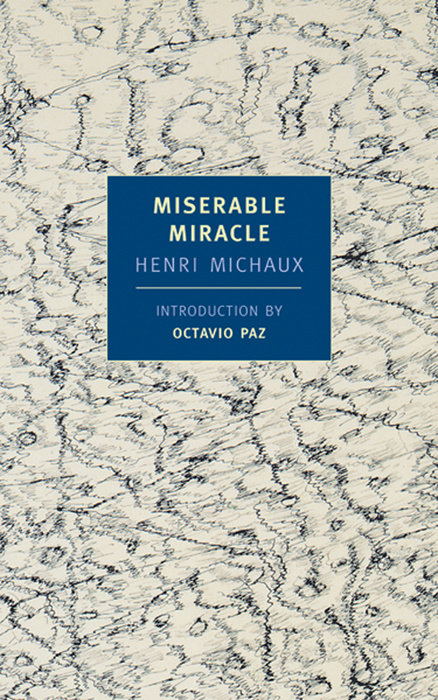What do you think?
Rate this book


200 pages, Paperback
First published January 1, 1956
You go from little death to little death for hours on end, from shipwreck to rescue, succumbing every three or four minutes without the least apprehension, only to be gently, marvelously resuscitated once more. A deep sigh, which speaks volumes to those who know, is the only intimation of new rescues, but the voyage continues, a new death is preparing from which you will emerge in the same way. It is as though you had another heart whose systole and diastole occurred fifteen or twenty times an hour.
Offer what is of little importance, mental images, little everyday ideas.
Otherwise you will be wholly uninhabitable, horrifying to yourself, your house in the torrent, an object of ridicule in your own eyes.
Sometimes a glass stairway, a stairway like Jacob’s ladder, a stairway with more steps than I could climb in three entire lifetimes, a stairway with ten million steps, a stairway without landings, a stairway up to the sky, the maddest, most monstrous feat since the tower of Babel, rose into the absolute. Suddenly, I could see it no longer. The stairway had vanished like bubbles of champagne, and I continued my navigation, struggling not to roll, struggling against suctions and pullings, against infinitely small jumping things, against stretched webs, and arching claws. [p.37]As you can see, Michaux’s prose quality is adequate to the task of conveying psychedelic phenomena, although of course language at its best can only ever trace the shadow of experience, right? Not quite; but more than most should ask for, for who would want to poke a blood-drenched just-birthed fetus in a bathroom sink with a stick, even in hallucination, as our author did one page later: perhaps more horrifying when you link this scene to his earlier comments on the effects of mescaline, which for him immanentizes linguistic reifications, sews together mind and matter in phenomenal space, yes, he (or some part of him) wrote that baby there—and then it was.
Endlessly broken up, our attempts at composition admit only this one constant… Very… It is very… Everything is very… [p.70]A fruitful syntactic analysis may be performed on Michaux’s pronoun usage, as all three of “I,” “we,” and “he” occur throughout to refer—ostensibly—to himself; I suspect they serve as distance modifiers for (patterns of) thoughts he would prefer us more or less to associate with him, that is, his central self:
More than anything else Mescaline demolished some of my effectual barriers, the ones that make me myself and not one of the others among my possible “me’s.” It took me weeks and weeks to reconstruct them and to shut myself inside them again. [p.82]Additionally, scanned pages from Michaux’s tripping notebooks are scattered in groups, always interrupting the flow of text from the page before. From these I found “chaque foi” and “une cigarette”; but I am not here to scavenge scraps of coherence from illegibility, nor to entertain methodological conceits regarding the mechanism of conceptual access:
Coming out of Mescaline you know better than any Buddhist that everything is nothing but appearance. [p.80]I am here, apparently, to mine for quotes (which I can then deploy in opportune contexts); Miserable Miracle is by and large a juicy vein:
What is it in life that is most exhausting and that leads surely to madness? It is to stay awake. It is to remain too long at one’s instrument panel. [p.154]
suddenly a knife, suddenly a thousand knives, suddenly a thousand brilliant scythes of light set in lightning, huge enough to level whole forests, violently start slicing up space from top to bottom with gigantic slashes, with amazingly rapid slashes that I have to keep up with, inwardly, painfully, at the same unbearable speed, at those same impossible heights and just afterwards in the same abyssal depths, in increasingly excessive, crazy, dismembering leaps...
Personally, I had always had a hard time making sense of delusions of persecution. What a lack of pride, I had always thought--in spite of the example of great writers, those persecuted madmen--to admit that other people were enemies, and powerful enemies! Now I believed I understood. The staging, for the man who feels persecuted, is not what counts. He begins by feeling the threat, by feeling himself threatened. Afterwards he finds the people who are threatening him (people who fit the role more or less).
Caught, not by anything human, but in a frenzied mechanical agitator, a kneader-crusher-crumbler, treated like metal in a steel mill, like water in a turbine, like wind in a blower, like a root in an automatic fiber-shredder, like iron in the tireless motion of a milling machine cutting gear teeth. But in my case I was also forced to look on!On the topic of attempts to describe subjective experiences with psychedelic drugs, there are a number of well-known works that might be called "canonical"—Carlos Castaneda's The Teachings of Don Juan: A Yaqui Way of Knowledge, The Psychedelic Experience: A Manual Based on The Tibetan Book of the Dead by Timothy Leary, Ralph Metzner and Richard Alpert, and perhaps most famous of all, Aldous Huxley's The Doors of Perception. For my money, the comparatively lesser known Miserable Miracle, detailing Henri Michaux's experiences with mescaline, is a substantially better work than those aforementioned.
There is a certain temperament which longs to adore God, cannot adore God, and is frightened to death by God. How many men have become atheists (above all theophobes) in order to get back their peace of mind!